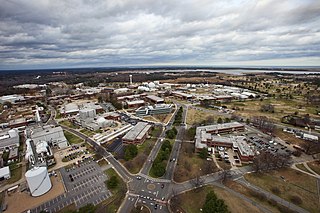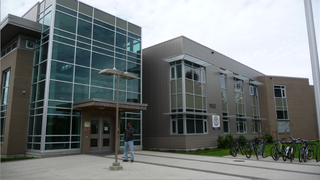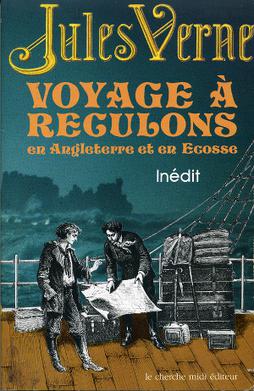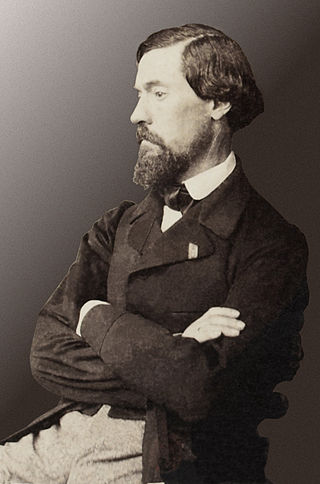Related Research Articles

Jules Gabriel Verne was a French novelist, poet, and playwright. His collaboration with the publisher Pierre-Jules Hetzel led to the creation of the Voyages extraordinaires, a series of bestselling adventure novels including Journey to the Center of the Earth (1864), Twenty Thousand Leagues Under the Seas (1870), and Around the World in Eighty Days (1872). His novels, always well documented, are generally set in the second half of the 19th century, taking into account the technological advances of the time.

Wind tunnels are machines where an object is held stationary inside a tube, and air is blown around it to study the interaction between the object and the moving air. They are used to test the aerodynamic effects of aircraft, rockets, cars, and buildings. Different wind tunnels range in size from less than a foot across, to over 100 feet (30 m), and can have air that moves at speeds from a light breeze to hypersonic velocities.

Nantes is a city in Loire-Atlantique of France on the Loire, 50 km (31 mi) from the Atlantic coast. The city is the sixth largest in France, with a population of 320,732 in Nantes proper and a metropolitan area of nearly 1 million inhabitants (2020). With Saint-Nazaire, a seaport on the Loire estuary, Nantes forms one of the main north-western French metropolitan agglomerations.

École Centrale de Nantes, or Centrale Nantes, is a grande école - a French engineering school - established in 1919 under the name of Institut Polytechnique de l'Ouest. It provides Bachelor, Graduate, Master, and PhD Programmes based on the latest scientific and technological developments and the best management practices.

Ontario Tech University (OTU), also known as Ontario Tech, is a public research university located in Oshawa, Ontario, Canada. The university's main campus is located on approximately 160 hectares of land in northern Oshawa, while its secondary satellite campus is situated in downtown Oshawa. The university is a co-educational institution that operates seven academic faculties.

The Langley Research Center, located in Hampton, Virginia near the Chesapeake Bay front of Langley Air Force Base, is the oldest of NASA's field centers. LaRC has focused primarily on aeronautical research but has also tested space hardware such as the Apollo Lunar Module. In addition, many of the earliest high-profile space missions were planned and designed on-site. Langley was also considered a potential site for NASA's Manned Spacecraft Center prior to the eventual selection of Houston, Texas.

The Jules Verne Trophy is a prize for the fastest circumnavigation of the world by any type of yacht with no restrictions on the size of the crew provided the vessel has registered with the organization and paid an entry fee. A vessel holding the Jules Verne trophy will not necessarily hold the absolute round the world record. The trophy was first awarded to the first yacht which sailed around the world in less than 80 days. The name of the award is a reference to the Jules Verne novel Around the World in Eighty Days in which Phileas Fogg traverses the planet in 80 days. The current holder is IDEC Sport skippered by Francis Joyon in 40 days 23 hours 30 minutes 30 seconds.

The Maison d'Ailleurs is a museum of science fiction, utopia and extraordinary journeys in Yverdon-les-Bains (Switzerland). It is a non-profit foundation functioning both as a public museum and a specialized research center.

The Doriot Climatic Chambers (DCCs) are a pair of very large, highly specialized wind tunnels/environmental chambers located at the U.S. Army’s Soldier Systems Center (SSC) in Natick, Massachusetts. Built in 1952, the Chambers are a unique facility, capable of simulating an extreme range of global weather conditions for the testing of both the physical properties of military equipment and the physiology and adaptations of human subjects.

Brains is a commune in the Loire-Atlantique department in the Pays de la Loire region in western France. The commune is a part of historical Brittany, in the traditional region of Retz, and in the historical region of Nantes.

The Musée Jules Verne is a museum dedicated to the French writer Jules Verne. It is located in the city of Nantes, France, and was opened in 1978 to mark the 150th anniversary of Verne's birth. The painter Jean Bruneau, helped by Luce Courville, curator of the municipal library, joined forces to open this museum.
Banque Palatine is a French bank founded in 1780 in Lyon, and is therefore one of the oldest French banks still being run. It is today a full branch subsidiary of the mutual group BPCE. Its core businesses are retail banking with small and medium-sized enterprises, private banking and asset management. Its headquarters is in Paris downtown, in the la Madeleine neighbourhood.

Speed sailing records are sanctioned, since 1972, by the World Sailing Speed Record Council (WSSRC). Records are measured either by average speed over a specified distance or by total distance traveled during a specified time interval. The three most sought after records are the:

The Nantes Planetarium is a public planetarium that opened on 18 June 1981. It operates as an auditorium that presents astronomy shows for all audiences.

École secondaire Jules-Verne is a public francophone secondary school located in the South Cambie neighbourhood of Vancouver, British Columbia, Canada. Named after the French author, it is part of School District 93. The school is one of the many schools in Vancouver that provide the IB Diploma Program.
The Centre Scientifique et Technique du Bâtiment CSTB, is the French national organisation providing research and innovation, consultancy, testing, training and certification services in the construction industry. It was founded in 1947 after the Second World War to support the reconstruction effort.

Backwards to Britain is a semi-autobiographical novel by the French writer Jules Verne, written in the fall and winter of 1859–1860 and not published until 1989.

The Jules Verne was an express train that linked Paris and Nantes in France. Operated by the Société Nationale des Chemins de fer français (SNCF), it was the last new Trans Europ Express (TEE) to be introduced, in 1980.

Pierre-Michel-François Chevalier, known as Pitre-Chevalier, was a French author, historian and journalist. He was an editor of Le Figaro and Director of the Museum of Families.
References
- ↑ "Jules Verne climatic wind tunnel". CSTB. Retrieved 28 January 2020.
- ↑ "La soufflerie climatique Jules Verne du CSTB inaugurée le 29 mars". CSTB. Retrieved 28 January 2020.
- ↑ Ferguson, Sarah. "How To Build A Better Tent". Forbes. Retrieved 28 January 2020.